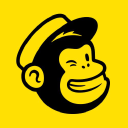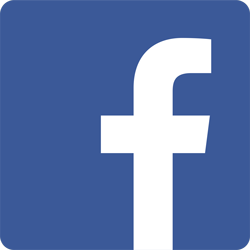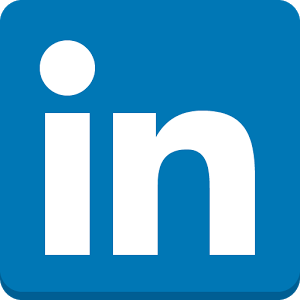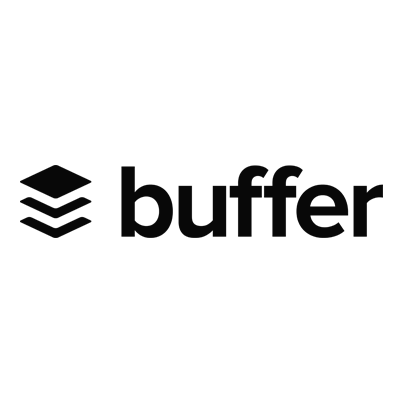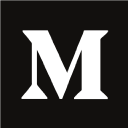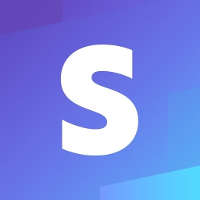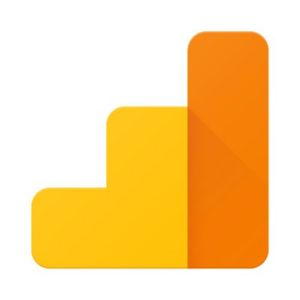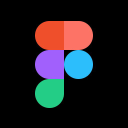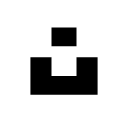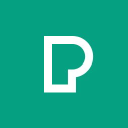Building A Talent Subscription Platform For Early-Stage Companies
Hello, my name is Sneha Saigal and I am the co-founder and CEO of Geeks and Experts, a talent subscription platform. We are introducing a new model of productized services for small and medium businesses that are looking to hire anything from freelancers to full-time hires.
You are matched with talent after you submit an intake form and we carefully curate meaningful connections between you and the talent - think of it like subscribing to a service for as long as you need and renewing it or pausing it when you don’t need it.
We’ve seen a lot of positive growth and traction from founder communities as well as venture funds who want to hire our talent for their portfolio companies.


What's your backstory and how did you come up with the idea?
I've had a very nonlinear career path. My diverse career has allowed me to work at many early-stage companies over the last decade, incl. managing over $2m in funds, overseeing global launches, and going public.
I worked in food tech, Edtech, and social impact and eventually decided to start my own company after getting my MBA from IESE Business School in Barcelona.
Throughout my journey of working with early-stage companies, I realized how volatile business needs are. Hiring full-time costs companies north of $4,000 and freelancing was not always sufficient and could impact projects in the long run.
Sometimes you just needed professionals to come in for 10 to 16 weeks to fulfill your immediate business requirements. That is when the idea of Geeks and Experts was born.
After conducting over 110 customer interviews with heads of community, chiefs of staff, and founders at early-stage companies we realized that especially due to the current economic environment companies want to keep burn low and therefore this model would be a good fit for them.
The future of work is fractional and we want to make this fractional talent functional for teams at all stages. Existing freelance platforms are the fast fashion version of what we are doing. There isn’t a one-size-fits-all model.
We have a peer-referencing and value-aligned matching model that will equip diverse and inclusive subject matter experts to choose clients based on their brand’s core values and philosophy.
Take us through the process of building the first version of your product.
Our product has evolved from the early days. We made the initial mistake of leading with the product and putting time and resources to build a custom-built website that had all the bells and whistles in place.
However, very soon we realized that we needed to scale back a bit and first build a very low-cost MVP that would define the go-to-market strategy and product roadmap going forward so we used all the agile tools possible and built an MVP within a week and began validating the idea.
We spent the bare minimum amount on no-code tools as well as on registering our company so that we could get it off the ground. My co-founder VB is a creative technologist and he built the product in-house.
Our expertise in building products with low-cost agile tools has given us the ability to move fast and quickly respond to changes in the business environment. We are completely bootstrapped at the moment and are projected to generate revenue through pilot programs and paid strategic partnerships.
In the early stages, it is not about making money but about taking a customer from point A to point B or solving one single pain point for them.
Describe the process of launching the business.
We launched our business entirely based on Word of Mouth and referrals with zero money spent on advertising or paid media. We actively spent time in founder communities and in-person events where we could find strategic partners for Geeks and Experts as well as do live events and webinars on topics like go-to-market strategies for founders, speed pitching, and feedback sessions, defining your ideal customer persona, and so on.
We built strategic partnerships with communities and venture funds and worked directly on sales to tech companies who could utilize our services and subscribe to our talent on an as-you-need basis.
Nailing distribution was one of our biggest learnings as a startup. User-generated content such as blogs and testimonials and positive reviews go a long way in building trust and credibility in the early stages so we leveraged that and our talent pool of experts became our brand ambassadors.
With more and more founders and investors shedding light on the importance of well-being and mental health, founders have got to protect themselves.



Since launch, what has worked to attract and retain customers?
Our biggest growth has come from organic and Word of Mouth marketing. We have created content such as guest blogs through which we have reached a larger audience of our experts. Adding value to people has been the single best way to get customers and turn them into loyal fans.
In the early stages, it is not about making money but about taking a customer from point A to point B or solving one single pain point for them. This might sound counterintuitive and not scalable but it is what has helped build trust and credibility with our community.
We have spent a lot of time building relationships with existing and adjacent communities that have similar audiences such as Kernal and Products by Women and the goal from these communities is to reach the core audiences and take our products and services to them directly we have also leveraged the power of PR and have got earned media by writing on platforms such as Authority Magazine, Idea Mensch, Entrepreneur’s Handbook, and The Startup.
We haven’t done paid ads or sponsorships and have only leveraged the power of organic marketing and referrals from existing users and partners. This has worked best to help us identify the most effective acquisition channels.
When we started out, we planned to go directly to users but pivoted to B2B and B2B2C channels when we found that we could reach a larger audience via these channels. We send a newsletter regularly to our audience in which we showcase the new talent we have onboarded.
Utilizing these channels and also growing our website blog has helped us reach more users and spread the word about our talent network.




How are you doing today and what does the future look like?
We have had the incredible opportunity of participating in the Techstars accelerator and over the last few months, we have made several transitions and pivoted from B2C to B2B customers.
We have onboarded talent from various domains and backgrounds including those who have experience with Forbes, Acquire.com, Morning Brew, Gum Road, Product Hunt, Viacom Media, Drunk Yoga, and more.
Our email campaign has had a successful open rate of 60% so we’ve also run successful newsletter cross-promotions with other brands and communities. Our talent pool has been expanding organically with existing experts recommending our platform to their networks and this has grown to 80 experts and over 300 beta testers.
Our goal is to be the diverse and inclusive platform for small and medium businesses to find talent to scale their sales, PR, or branding efforts on an as-you-need basis. We also aim to systemize Word of Mouth or peer-referencing which is the highest acquisition channel for solopreneurs and independent consultants.
Our vision is to create a value-aligned talent platform where both sides of users can select projects that align with their values from ESG, and DE&I to social impact and more.
Through starting the business, have you learned anything particularly helpful or advantageous?
The ride of entrepreneurship has been full of valuable lessons, not losses which I have learned, and one of those is that this is a long-term game and you cannot start with solely thinking about how much money you can make. It has to start small by creating value for even one single user.
You have to be okay with moving fast, being scrappy, and not trying to perfect everything including a pivot. Especially pivots!!! Pivots are messy and natural and you have to know that you understand your business the best. No blogs, self-help books, or advisors can give you the earned insight that you have about your business. So lead with your gut and don't try to perfect everything.
Lastly don’t forget to treat this as a vessel for self-growth, discovery, and continuous learning. I have had the opportunity to meet some incredible founders and mentors throughout this process and that is only possible if you are open to connecting and learning from one another and not merely here for transactional purposes.
What platform/tools do you use for your business?
Bubble has been a great tool for us to test the product features and conduct experiments while we iterate our product. Other tools such as Figma have been great for prototyping. We also use Buffer for all our social media outreach. Lastly, I highly recommend Paperstreet to anyone who is looking to send monthly updates to their community. It’s a great practice to start as early as possible.
What have been the most influential books, podcasts, or other resources?
Often the shiny object syndrome distracts you from focusing on one task at hand. In such times, I have found that the book Make Time: How to Focus on What Matters Every Day by Jake Knapp and John Zeratsky has got to be a book for the modern-age professionals who get all too caught up in the “Busy Bandwagons” or “Infinity Pools” and are unable to make time for what matters the most.
The inventing deadlines method from Make Time is what helped me accomplish my milestone of running a half-marathon – a goal I had been putting off for many years. Especially, when some goals and ideas don’t have a pressing timeline, I have found that inventing a fake deadline builds much-needed momentum.
This has helped me make my overall day feel more productive. Showing up every day also looks different for everybody and changes on a daily basis. But, the sooner the ability to do 1% better each day sets in the more productive you can feel. I’ve also found great value in books like The Mom Test, Growth Hacking, Do More, Faster, and The Minimalist Entrepreneur.
Advice for other entrepreneurs who want to get started or are just starting out?
It is crucial to be your biggest cheerleader but also to be a mirror to yourself and stay as authentic to yourself as you can. It’s human nature to downplay our wins and uplift others. So you have to make a conscious effort to extend yourself some grace when it gets tough.
Remember to invest in yourself. My one mantra is that you can’t pour from an empty cup. And, with more and more founders and investors shedding light on the importance of well-being and mental health, founders have got to protect themselves.
Lastly, while having big and audacious goals is fabulous, it gets overwhelming when you see this as the end goal and want to accelerate to the finish line to see the outcome. It’s essential to take it one day at a time and break it down piece by piece.
Where can we go to learn more?
If you have any questions or comments, drop a comment below!

Download the report and join our email newsletter packed with business ideas and money-making opportunities, backed by real-life case studies.

Download the report and join our email newsletter packed with business ideas and money-making opportunities, backed by real-life case studies.

Download the report and join our email newsletter packed with business ideas and money-making opportunities, backed by real-life case studies.

Download the report and join our email newsletter packed with business ideas and money-making opportunities, backed by real-life case studies.

Download the report and join our email newsletter packed with business ideas and money-making opportunities, backed by real-life case studies.

Download the report and join our email newsletter packed with business ideas and money-making opportunities, backed by real-life case studies.

Download the report and join our email newsletter packed with business ideas and money-making opportunities, backed by real-life case studies.

Download the report and join our email newsletter packed with business ideas and money-making opportunities, backed by real-life case studies.
